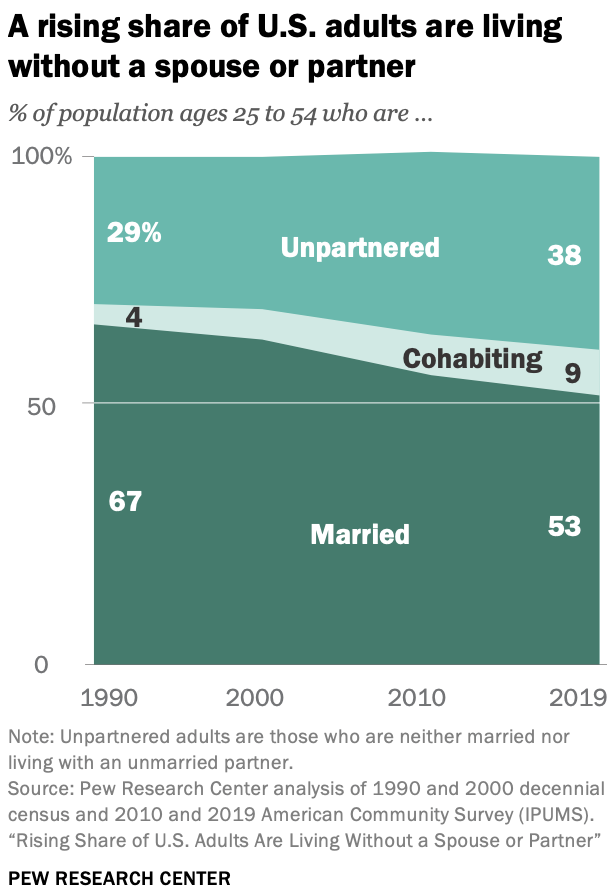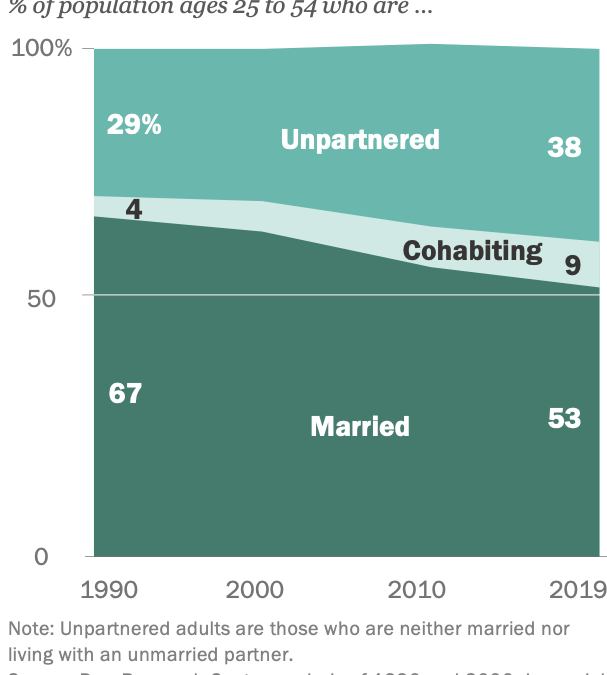Dear Integral,
This month, the Pew Research Center published a new report, showing that in 2019 the share of unpartnered American adults had risen to 38% percent and marriage rates fell to 53%. This trend has only continued since then, and we see it in many other countries, despite the many financial, social, educational, psychological, and health benefits that people in committed relationships and especially healthy marriages enjoy.

Image above: US adults living without a partner
Pew writes:
“Looking across a range of measures of economic and social status, unpartnered adults generally have different – often worse – outcomes than those who are married. This pattern is apparent among both men and women. Unpartnered adults have lower earnings and are less likely to be employed or economically independent. They also have lower educational attainment and are more likely to live with their parents. Other research suggests that married and cohabiting adults fare better than those who are unpartnered when it comes to some health outcomes.”
Divorced Charles M. Blow writes in his Oct. 20, 2021, New York Times Op Ed: “To each his (or her) own, I say. And that includes the happily single and happily partnered people who don’t want to marry. Marriage as the prevailing ideal is losing its grip. And the stigma of being unmarried is also losing its grip, as it should. Now government policy that rewards the married while punishing the single must also loosen up.”
His individualistic attitude deeply saddens and concerns me on an individual and collective level.
If we can’t get along and live (and if possible procreate) with at least one person in a peaceful and sustainable love relationship, how can we expect to co-create a peaceful world and sustainable future for humanity? I think this should concern all of us.
Of course, we can’t force people to be in committed relationships (as in the movie The Lobster), but we can develop the necessary skills for mastering the relationship challenges of the 21st century by integrating the essential elements for healthy sustainable love relationships, and create supportive social systems and incentives for couples.

